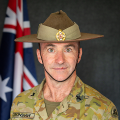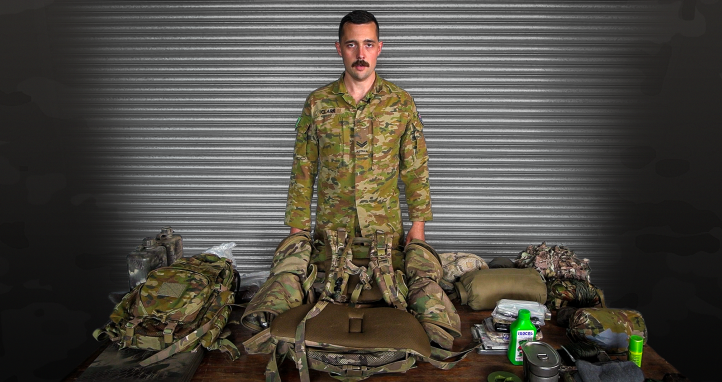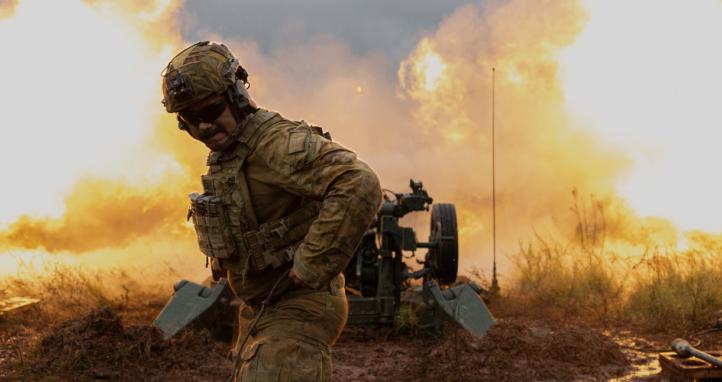An earlier version of this review was originally published in Practical Theology, 12:3 (2019), pp.355-356.
The attraction of this book for me was multi-layered for sport, spirituality, and soldiering. As an endurance sport athlete, I have to keep breathing, and keep my breathing calm and under control. For the rhythm of swimming, breathing out as well as in is especially important. In meditation, mindfulness and prayer, breathing is also central. My yoga teacher consistently reminds me to breathe through my exercises while stretching. Recruit instructors remind their sections that breathing is foundational for accurate combat shooting behaviour. It is also a handy tool for resilience, and a factor for mental health and managing anxiety. Attentiveness to my breathing is a growing edge for many aspects of my life. Thus, I was eager to learn and practice breathwork from the exercises and principles of Just Breathe.
Dan Brulé is an international expert and pioneering guru in breathwork, and leader of the Spiritual Breathing movement. The curious genesis of his interest in breathing was hearing his Catholic pastor instruct his first-grade class on Genesis and how God “breathed into the nostrils of man the breath of life; and man became a living soul”. This idea that God was breathing into him captured his imagination. He later became a US Navy deep-sea diver; trained CPR instructors; studied with Indian yogis, Zen Buddhists, and Chinese medicine experts; and developed a university program on breathing training.
Just Breathe offers six chapters that offer a combination of breathing principles, an overview of chosen experts, and suggested exercises. The first chapter is an introduction to breath awareness and conscious breathing. The next three chapters outline principles and diverse exercises for breathing that have potential to transform our bodies, minds, and spirits. A fifth chapter counsels how breathing can foster success in all aspects of life, relationships, and work. Finally, Brulé outlines a 21-day breath mastery challenge with different exercises for each day.
The scope of the book is as broad-reaching and ambitious in what it promises as Brulé’s definition of breathwork: “the use of Breath Awareness and Conscious Breathing for healing and growth, personal awakening, and transformation in spirit, mind, and body” (p.3). There were more experts and exercises than I have time for, but I was convinced that just practicing a few of the exercises would help my physical, mental, and spiritual health. For example, these are ten exercises or principles I noted that I wanted to practice:
- Use your nose more often to breathe especially when wanting to relax, but through your mouth into the chest to foster creativity and ‘charged aliveness’.
- Practice breath regulation, e.g. breathing in for five (or more) seconds and out for five (or more). Even better, do this for five minutes three times per day, do it together with your teams or those you love, and when doing other activities.
- To remove stress, make exhales longer than inhales (relaxation breathing).
- Don’t hesitate to yawn more for better health (and before and after athletic performance, presentations, or other important activities).
- Take tiny butterfly breaths to get energy flowing then take a long breath.
- Get an energy boost from the “Iceman” Wim Hof’s exercise of taking a few long deep breaths, then 30 deep full breaths exhaling without force through your mouth, then one deep breath and after exhaling hold it till your diaphragm flutters, then inhale and hold for 10 seconds. Repeat three times, three times per day. This increases blood to the brain and trains you to tolerate air hunger (good for my swimming).
- To prepare for a challenge, practice breath control with “box breathing” of inhaling for a count of four, holding for four, exhaling for four, and holding for four.
- Combine breathing awareness with “arousal control” by feeding the “courage wolf” and starving the “fear wolf”: avoiding performance-degrading imagery and instead visualizing success.
- Breathe in rhythm to footsteps when running and focus on breathing rather than any pain or fatigue.
- Develop breathing meditations such as breathing in and imagining “The power of God is within me” and breathing out and thinking “The grace of God surrounds me”.
Brulé argues that genuine innovation and real creativity emerges not from the head but the body, and the best way to get in touch with our bodies is breathing awareness. He urges borrowing a principle from Einstein, who – when he felt stuck with a problem – sought to get out of his head by going sailing, playing music, or having a sleep. Breathwork, similarly, offers to help add a deeper element of improvement to our health and performance.
Just Breathe is recommended for anyone who would like deeper understanding about untapping the potential of greater breath awareness and conscious breathing and its advantages for health, performance, and spirituality.




